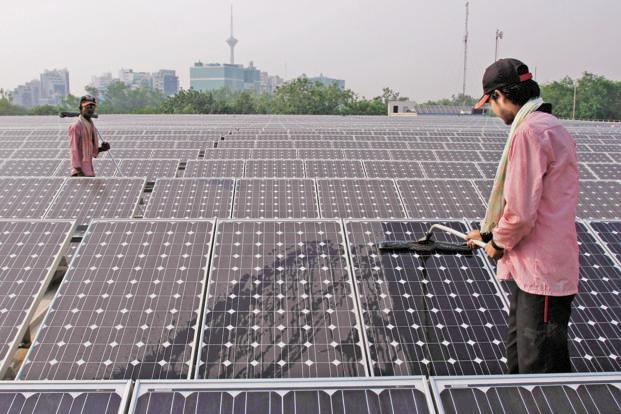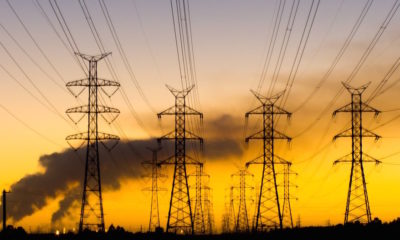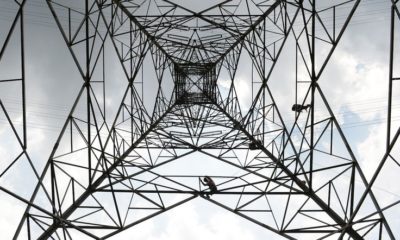- Poor Power Supply: Startups to the Rescue
Poor power supply is affecting economic growth. Tech startups are tackling the problem, reports Daniel Essiet.
Energy is an essential factor for reducing poverty and boosting economic growth. But across Nigeria, there is inadequate energy to spur the much- needed development.
About 70 per cent of households are either off-grid or have a ‘bad grid’ connection with less than four hours of electricity per day, according to a report by Dalbery.
To this end, analysts say expanding electrification is an important step towards building an economy. This has created opportunities for tech startups, which are preoccupied with delivering transformative change through solar and other forms of alternative energy.
Now, there are entrepreneurs powering solar street lights and solar projects. Some are processing waste into biodiesel and solar energy.
One of them is Quaint Global Energy Solutions. The firm develops renewable power projects and provides solar energy solutions to rural Nigeria. The company has been given a grant by the United States Trade and Development Agency for a solar power project that they are developing in northern Nigeria.
Quaint Global Energy Solutions is working with California-based Tetra Tech. On its completion, the project is expected to bring 50 megawatts of clean energy to Kaduna State and generate more than $160 million revenue.
Another one is Rensource Energy, aimed at delivering affordable solar energy to households and businesses to replace the use of generators.
It introduced a segmented subscription-based business model in March 2017 that enabled customers prepay for energy, rather than own the infrastructure. This means customers can save a lot of money by switching to solar energy. The system uses a combination of long-lasting lithium-based batteries and solar energy. The service is offered through a mobile-based user interface that allows its customers to pay their bills, and to understand how they use their power.
Since its inception in 2015, Rensource has managed well over 1,500 customers.
Last year, the firm secured a loan of €500,000 from Trine Financial Limited.
Early last year, the renewable energy startup also secured $3.5 million in bridge financing to expand the business. In 2016, Rensource had secured a previous funding of about $1.1 million, bringing its total investments from external funding to $5.5 million.
Other startups have also entered the sector. But that of OneWattSolar, a startup based in Lagos, has been significant. It allows Nigerians to pay for solar energy with Blockchain tokens.
The company allows customers to purchase tokens in naira using the platforms of third party tech finance firms.
It seeks to help people pay for the energy using Blockchain without owning the solar infrastructure that provides the power.
OneWattSolar uses blockchain in three ways: raises funds to buy and install the solar systems, helps users track energy use and allow users buy energy credits for their homes.The startup targets customers who spend about N10, 000 monthly or more on their energy bills. There are plans to target other customer segments.
So far, it has a target of 12,000 homes or businesses with clean solar energy.
OneWattSolar systems comprise solar panels, internet-enabled meter system and inverter battery technology. The system components are being custom-designed specifically to meet the needs of its customers as against buying ready-made solar panels and equipment. OneWattSolar pays for, installs, owns and operates the Solar Residential Energy Unit (SHS). OneWattSolar is working with independent solar installers within GoSolar Africa’s network.
OneWattSolar was founded by GoSolar Africana renewable energy startup also based in Lagos that provides clean energy to households, businesses, schools, non-profits and government organisations.
GoSolar Africa is led by Femi Oye who founded the company in 2010.
Another firm is AllOn, an impact investing firm established to stimulate the development of collaborative partnerships for innovative solutions that facilitate increased access to affordable, reliable and sustainable energy sources in Nigeria.
AllOn CEO, Dr. Wiebe Boer Boer said: “The energy gap in Nigeria is the foundation for so many of the country’s economic and social development problems.”
He said power distribution is a major stumbling block to development with firms seldom making it beyond big cities due to high costs of installation.
He said the huge energy access gap in the country means the opportunities to address the gap were also considerable.
With limited grid coverage, the Allon chief noted that many Nigerians relied on electricity generators.
He stated that with Nigeria’s increasing energy requirements to achieve its developmental goals, there was the need to find and support clean energy innovators to build successful and sustainable businesses around their solutions.
He said many small scale firms and startups have ventured into the sector and can explore its vast amount renewable energy potential.
Boer explained that many entrepreneurs were rising to the challenge of leveraging the off-grid power revolution to provide electricity for millions of people in parts of the country through innovative and adaptive technologies and business models borrowed from outside.
One area that offers sustainable investment opportunities for entrepreneurs, he said, is solar energy due to advances in technologies.
Boer said the mini-grids and solar home systems that will save Nigerians billions yearly.
He said the company focuses on energy efficiency and renewable energy and aims to help startups develop practical solutions, test-bed the solutions in actual projects, and build their track record.
He said his organisation is ready to support startups to bring lighting solutions to off-grid communities who live in informal settlements and rural areas across the country.
According to him, there are opportunities for small businesses to invest in solar cells, earn income and help bring electricity to areas in need.
He said startups could provide low-cost, environmentally-friendly power sources for lighting, cooking, among others.
Boer said the company would invest in entrepreneurs that could provide electricity to households without going through the complexities of building a big generation and transmission infrastructure.
He said funders were searching for innovators in the sector, to expand off-grid energy access for underserved markets, through solar, wind and biogas technologies.

 Billionaire Watch3 weeks ago
Billionaire Watch3 weeks ago
 Startups4 weeks ago
Startups4 weeks ago
 News4 weeks ago
News4 weeks ago
 News4 weeks ago
News4 weeks ago
 Bitcoin4 weeks ago
Bitcoin4 weeks ago
 Naira4 weeks ago
Naira4 weeks ago
 Forex3 weeks ago
Forex3 weeks ago
 Treasury Bills4 weeks ago
Treasury Bills4 weeks ago

























